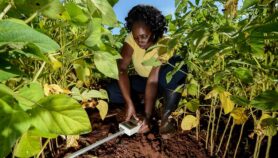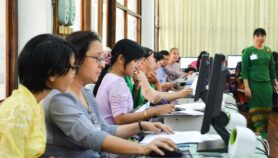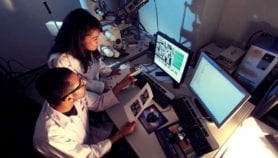By: Wagdy Sawahel
Send to a friend
The details you provide on this page will not be used to send unsolicited email, and will not be sold to a 3rd party. See privacy policy.
[CAIRO] Arab universities are being urged to make their research more accessible by placing information about it — including summaries of research projects and any results to emerge from them — on easily searchable electronic databases.
The calls were made at a meeting in Riyadh, Saudi Arabia, last month, which brought together scientists, technologists, policy makers and economists from across the region. The meeting also heard proposals that a regional database could be built up from a purely national database already established in Saudi Arabia.
At present, three-quarters of Arab universities libraries do not have databases about their research, and most of the databases that do exist are in English, not Arabic.
Reima ljarf, professor of English language translation and online learning at King Saud University in Riyadh, suggested that all Arab universities and research centres should develop electronic records providing details of their research. New research projects should be indexed, and information about them stored in databases on a regular basis, she said.
The increased availability of easily searchable electronic resources would not only give researchers access to a wide range of up-to-date information about the activities of their colleagues in the region, but would increase research productivity, added Ljarf.
At present, foreign universities with branches in the region, such as the University of Columbia in Sudan and the American University of Cairo and Beirut, host many more databases than Arab institutions, she said.
So far, about 1,500 abstracts have been entered into the database in medicine, engineering, agriculture, basic sciences, and humanities. It also contains details of about 12,500 Saudi researchers.
Al-Fesealy said that if more countries join the database, it could become a gateway through which Arab researchers in all fields could share from their experiences, providing a world-class research database vital for the promotion of science and technology in Arab countries.













